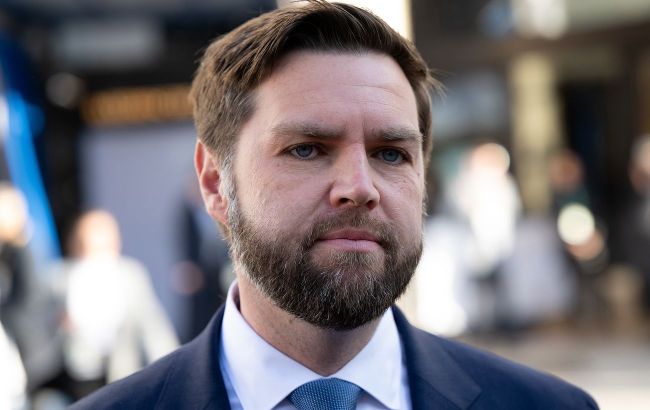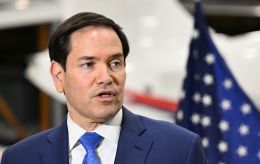Who is J.D. Vance, Trump’s pick for vice president?
 J.D. Vance (Photo: Getty Images)
J.D. Vance (Photo: Getty Images)
One way for Ukraine to learn more about Trump's potential policies is to take a close look at his team. After the National Republican Convention, an important element of this team became known. The 2024 US Vice Presidential candidate is Ohio Senator J.D. Vance. What has he said about Ukraine, and what might this step by Trump indicate?
Vladyslav Faraponov, head of the Institute of American Studies and an analyst at Internews-Ukraine, analyzes and answers these questions in a column for RBC-Ukraine.
Why Trump chose J.D. Vance
Being a US senator is very prestigious. There are only 100 senators, unlike the 435 members of the House of Representatives, and they are elected for 6 years, unlike the 2 years in the lower house of Congress. Vance became a senator in 2023 after defeating experienced Democratic congressman Tim Ryan in the race for a Senate seat. In 2022, Trump helped Vance win by endorsing him as a candidate at the last moment.
Little is known about his biography from his official website. What is known is that he grew up in a not-very-wealthy family. Vance wrote a bestselling book, "Hillbilly Elegy: A Memoir of a Family and Culture in Crisis," which was even made into a Netflix movie.
Vance is from Middletown, a town with a population of 55,000 located between the relatively large Ohio cities of Cincinnati and Dayton. This region is known as the Rust Belt, once one of the most industrial parts of the USA. However, over time, many enterprises had to close, leading to population outflow, unemployment, and poverty. In Ohio, Trump unexpectedly won in 2016 and later with a bigger margin in 2020.
Vance had a difficult childhood, with his father abandoning him and his mother suffering from drug addiction. He was essentially raised by his grandmother, to whom Vance dedicates a special place in his unusually brief biography on the site. Despite these challenges, Senator Vance graduated from Ohio State University and Yale Law School, having served in the Marine Corps and participated in the Iraq War. This very American story is what Vance tells the world.
Trump, with this choice of VP candidate, aims to gain serious help and image support in communication with the middle and lower classes. After the unexpected success of his book, Vance, at 38, became a senator. Such rapid achievements and ambition are highly valued in America. Despite some popularity following his book, over 56% of Americans had not heard of Vance by 2024.
Trump finally wants to get the VP choice right
However, party and personal loyalty are more valued. Vance understands that his chance lies in his added value to Trump - his age and prospects to continue Trump's work after Trump can no longer run for president.
In the 2016 election, Trump chose religious but moderate Indiana Governor Mike Pence as his VP candidate. According to Trump's national security advisor John Bolton, Pence significantly softened Trump's radical proposals. However, Pence's friendship with Trump ended on January 6, 2021, when Trump wanted Pence to not certify Biden's victory at a special joint session of Congress.
During the certification of votes, Trump's angry supporters stormed the Capitol. Since then, Pence has stated that he chose the Constitution over Trump that day. So, Trump has had enough time to find a much more loyal vice president.
Therefore, J.D. Vance perfectly fits this description. Since Trump played a role in Vance entering big politics, Vance is now expected to repay him with loyalty as a potential vice president. Although he criticized Trump when he first gained fame as a bestselling author, this did not prevent him from becoming close friends with Trump's family. Vance's close friendship with Donald Trump Jr. also influenced Trump's choice. This was openly acknowledged even at the party convention.
What J.D. Vance candidature means for Ukraine
During Senate debates on US aid to Ukraine, Vance criticized the Biden administration for lacking a strategy in the war, called Ukraine one of the most corrupt countries in the world, and implied that Russia would not lose this war. In his essay for the New York Times, which is not very typical for a Republican senator but previously Vance contributed to this pro-liberal media outlet, Vance convinces Americans that the needs of the Armed Forces of Ukraine for Kyiv’s victory far exceed the capabilities with which the US can produce artillery shells and Patriot air defense systems.
He also claimed that the US does not know where and how American aid is being spent. Although he acknowledged the positive effect of aid for Ukraine, in the same speech, he also effectively accused the Ukrainian authorities of profiteering from American aid without specifying who exactly.
At the Munich Security Conference in 2024, when the aforementioned vote on the next stage of funding aid to Ukraine had not yet taken place, he effectively represented Trump’s foreign policy position and said that Trump would not betray Europe, but Europe should be more concerned about its own security.
In foreign policy rhetoric over the past year, Vance fully echoes Trump’s theses. This is a set of roughly such messages: the US must focus on fighting against one opponent: either Russia or China, the US cannot conduct multiple wars simultaneously, Europe must help more, and Ukraine will eventually have to negotiate.
Vance’s argument regarding American aid to Kyiv concerns not the money allocated for aid to Ukraine but the amount of weapons and equipment. According to him, the US cannot afford to simultaneously assist in wars in Europe, the Middle East, and potentially in East Asia.
Vance also opposed the law passed in the US providing for the confiscation of sovereign Russian assets, arguing that it ties Trump’s hands during possible negotiations to end the war.
If we still expect a change in Vance’s position on the Russia-Ukraine war, it is unlikely to happen before the November 2024 elections. Vance is constantly reminded that in 2015-2016, to put it mildly, he was not a supporter of Trump, so as a VP candidate, he will be more cautious.
In the modern American political system, the vice president remains perhaps the least institutional figure. Formally, the powers of the vice president are limited to being the president of the Senate voting only in the event of a 50-50 tie, and being ready to replace the president in case of death, resignation, or inability to perform their duties.
It is unlikely that Vance will have a decisive influence on Trump’s potential policy toward Ukraine. However, his ideological closeness with the former US president, particularly on the issue of the Russia-Ukraine war, should lead to profound conclusions.
Translated by Kateryna Danishevska

